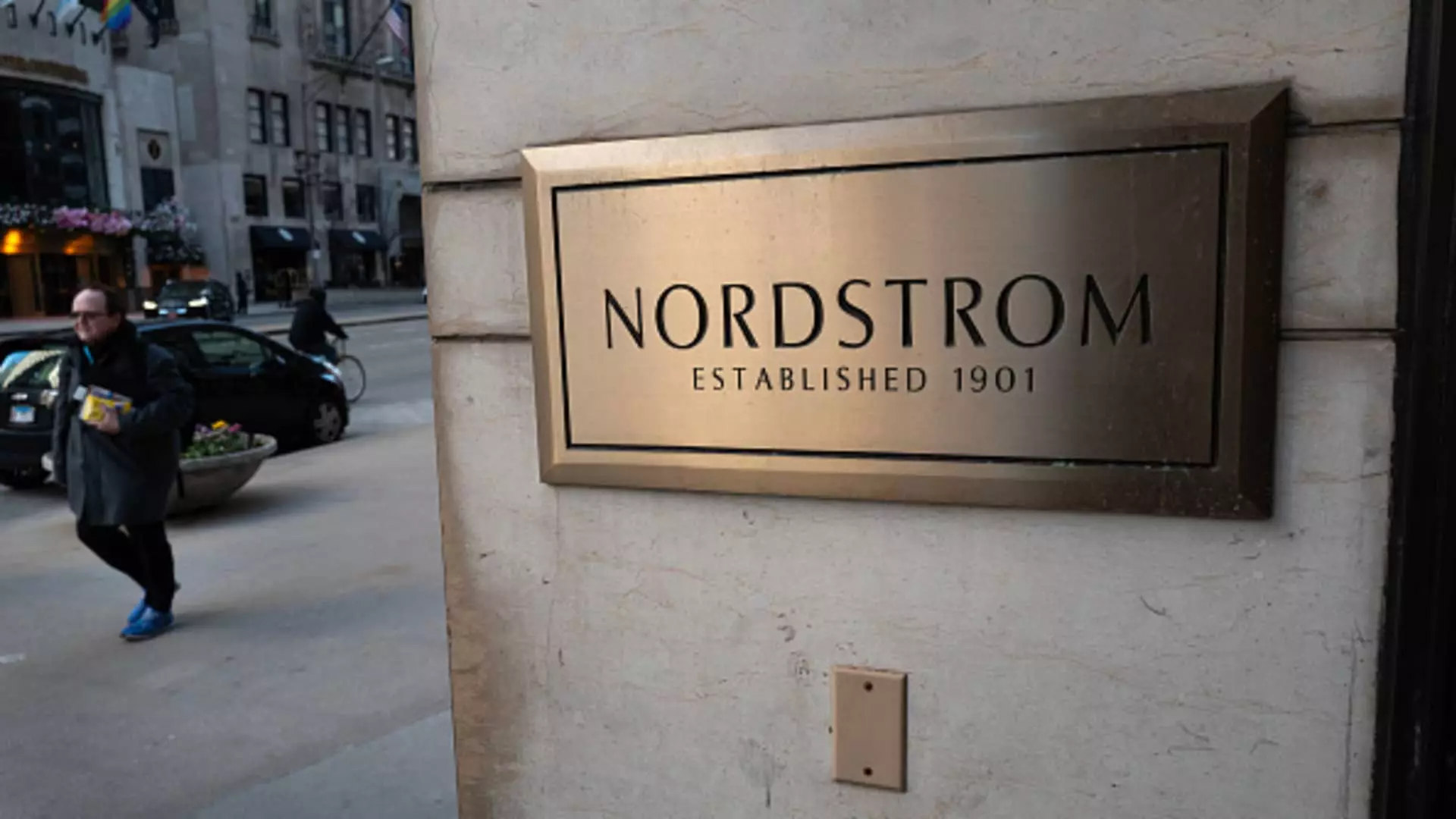Nordstrom, the iconic American retailer known for its upscale offerings, has taken a significant step in reshaping its corporate landscape. The company recently came to an agreement to go private in a deal worth approximately $6.25 billion, led by the Nordstrom family’s founding members and Mexican retailer El Puerto de Liverpool. With this transaction approved unanimously by the board of directors, it is expected to finalize in the first half of 2025. This strategic move not only alters the ownership dynamics—wherein the Nordstrom family will hold a slight majority at 50.1%—but also signals a shift in how the brand may navigate the changing retail environment.
For shareholders, the buyout comes with an offer of $24.25 in cash for each share they own. This not only serves as an immediate financial benefit but also reflects a premium on Nordstrom’s stock price amidst fluctuating market conditions. Following the announcement, shares initially dipped by about 1%, indicating a cautious market reaction which contrasts with a prior surge when rumors of private acquisition began circulating earlier this year. This duality showcases the complexity of investor sentiment in a time when retail stocks are generally under pressure due to shifting consumer priorities.
The struggles faced by Nordstrom mirror broader trends in the retail sector, where luxury dollar spending is uneven. Major competitors like Walmart, Best Buy, and Target have reported that the consumer landscape is increasingly defined by careful spending, particularly as the allure of non-essential items diminishes in favor of price-conscious choices. Nordstrom has recently maintained a moderate sales forecast, suggesting a cautious outlook as it braces for a potentially lackluster holiday season—a critical time for retailers.
Nordstrom’s transition back to private ownership isn’t a novel endeavor; a previous attempt in 2018 failed to materialize. This cycle indicates not just a reactive approach to existing market pressures but also reflects a continuous evolution of the retailer’s operational strategy. Founded in 1901 as a humble shoe store, the company has expanded its portfolio over the years into a comprehensive shopping experience across various brands and locations, including Nordstrom Rack and Nordstrom Local.
Looking ahead, this transition to private ownership invites speculation about the strategic directions Nordstrom may pursue. Erik Nordstrom, the company’s CEO, expressed optimism about this new chapter, emphasizing a commitment to customer satisfaction—a core pillar of the brand since its inception. The collaborative efforts between the Nordstrom family and El Puerto de Liverpool could enhance operational efficiencies while focusing on enriching the customer experience, potentially setting the stage for revitalized growth.
Nordstrom’s decision to go private is not just a shift in ownership but a reflection of the evolving dynamics of the retail environment. As the company seeks to adapt and thrive amid modern challenges, stakeholders will be closely watching how this transformation unfolds in the years to come.


Leave a Reply